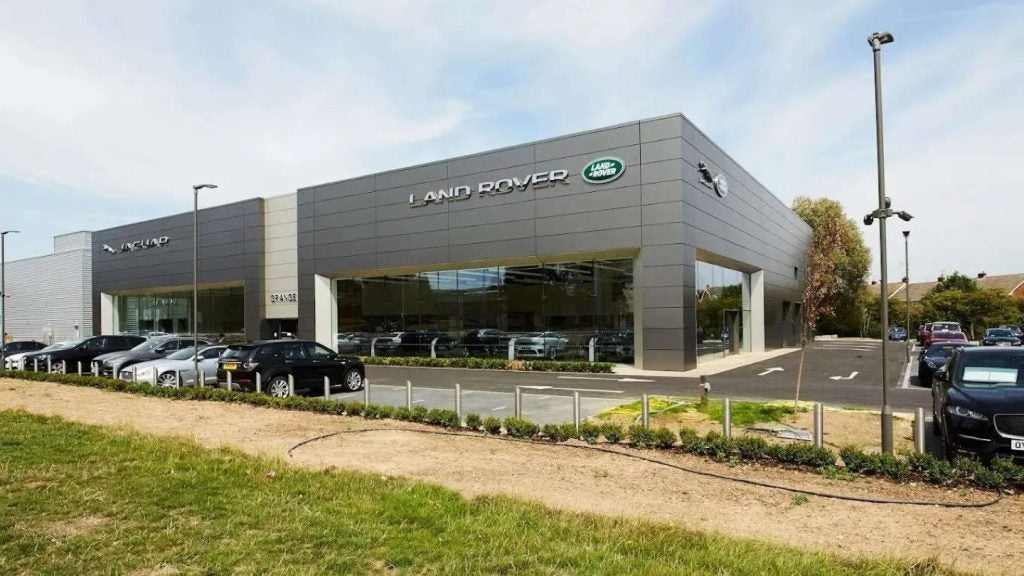Tacon finds that now more than ever, keeping up with the
back-end of the lending process
is taking centre stage for motor lenders.
statistics for Q4 2008 show that individual insolvencies in England
and Wales were up by 8.2 percent compared with the previous
quarter, and up by 18.5 percent compared with Q4 2007, reaching
29,444 during the last three months of the year.
And it seems, finally, that consumers’ financial
difficulties are showing up in levels of defaults seen in motor
lenders’ portfolios.
At the present time, back-office processes which
are fully up to speed and capable of handling
larger-than-anticipated volumes of arrears are a necessity for
finance houses – but is the industry prepared?
Facing up to the
situation
Neil Clyne, chief executive of Apex Credit
Management, which provides arrears outsourcing, debt collection,
debt purchase and tracing services to finance houses, warns that
many motor finance companies do not have the back-office resources
required to handle increased levels of arrears.
“Most have not invested as heavily as they should
have done in arrears,” Clyne says. “Most motor finance businesses
are very lean at the back end, and may be relying on staff with no
direct experience of previous recessions.”
“The better a finance company collects on its
debt, the more it can lend at the front end – it can recycle money,
and earn more”

US Tariffs are shifting - will you react or anticipate?
Don’t let policy changes catch you off guard. Stay proactive with real-time data and expert analysis.
By GlobalDataClyne suggests that this inexperience could cause
problems, as overstretched arrears management teams “shift resource
to one part of the problem, such as early delinquency, and take
their eye off the hardcore of mature bad debtors”. But an efficient
and well-resourced debt collection strategy is absolutely vital to
financiers, Clyne emphasises.
“The better a finance company collects on its debt,
the more it can lend at the front end – it can recycle money, and
earn more,” he points out.
Clyne says that, of the motor finance books Apex
has taken on, the ‘cleanest’, with the lowest levels of bad debt,
tend to be the ones which relied on zero percent APR incentives, as
these schemes “encourage people to borrow from [the lender] even if
they have the cash available” – although he says that even these
portfolios have their fair share of high-risk debtors.
“The frequency of delinquency among even the
highest-scoring ‘A’ customers has increased – just look at the
numbers of people who worked in the banking sector but have now
been laid off. These are people who would traditionally have been
blue-chip customers,” he adds.
For motor finance providers, rising redundancy
levels among customers need not necessarily correlate directly to a
worse-performing book – providing that motor finance agreements are
covered by payment protection insurance (PPI).
Keith Charlton, sales and marketing director at
subprime lender Advantage Finance, says: “We have noticed an
increase in customer redundancies, which has been accompanied by an
increase in PPI claims.
“This has resulted in a consequential increase in
the monies received from our PPI insurers.”
Present collection levels are, however, well in
line with expectations, he adds.
To outsource or not?
One way for motor finance companies which find
themselves inundated with rising arrears to deal with the inflow is
to outsource debt collection to a third-party provider. However,
the motor lenders surveyed by Motor Finance preferred, in
the main, to collect on their own books, with use of debt
collection agencies by and large confined to a small proportion of
overall cases.
Charlton says: “The vast majority of debt
collection, including legal and bad debt recovery, is conducted
in-house. Outside agencies are only utilised when absolutely
necessary, for example repossession and tracing services.”
Another independent finance provider adds:
“External investigation and collections resources will be utilised
in a small number of cases, but then only through known reputable
and established agents.”
Keeping arrears management in-house can help to
ensure a regular and steady approach to staying in touch with
customers – and to ensure compliance with the Financial Services
Authority’s ‘treating customers fairly’ (TCF) initiative.
Peter Minter, managing director of Duncton
comments: “Duncton takes a holistic approach to collections.
Customer contact throughout the agreement life – and afterwards –
is consistent and managed. As a result, detecting potential arrears
situations before they occur, and resolving them afterwards, is a
continuous process, managed almost entirely in-house.”
Outsourced customer contact must still be carefully
monitored, says Richard Tatford, credit operations director at
GMAC.
“The careful design of the strategy to ensure that
the outsourcer complements the overall outcome, rather than adding
confusion for the customer and unnecessary delay, is essential,”
Tatford observes.
Whether or not many motor financiers will be able
to maintain their preference for in-house collections teams is
another question – especially since most forecasters do not predict
an improvement in the overall economy before 2010 at the earliest,
meaning that the worst could still be yet to come.
The CBI says: “The worsening international backdrop
means it will take until the second half of next year until the
impact of interest rate cuts, falling inflation, the relative
weakness of sterling, plus the fiscal boost, start to have a
stabilising effect.”
Such a gloomy outlook means that a rise in demand
among motor finance companies for outsourced debt collection and
arrears management appears to be a racing certainty – with
providers of these services poised to benefit.
Advantage Finance is looking to throw its hat into
the ring, says Charlton
He adds: “We are considering the possibility of
offering our collection management services to the owners of other
motor finance portfolios, and are willing to enter into discussions
with interested parties.”
Paying on time
Timing is of crucial importance. Systems which pick
up signs of financial distress early in the debt cycle are widely
used, and seen as central to a sensible arrears strategy.
Minter says: “We start working with our customers
very early in the event of arrears to find out whether they will be
able to pay, or whether it is best to call it a day sooner rather
than later.
“We do not subscribe to the view that everybody can
always find a way out of arrears, and would rather identify these
customers quickly and minimise the potential arrears problem before
they build up to a very large debt.”
The humble telephone remains “the primary means of
contact”, says Tatford – although failure to capture customers’
mobile phone numbers leaves lenders “at a distinct
disadvantage”.
He adds: “The sensible use of text messaging,
particularly for hard-to-contact customers, is increasing, and
proves useful if the message is designed to encourage contact.”
Capturing email addresses can also prove helpful,
he says.
Minter concurs: “There are some interesting
technologies that can make a big difference if used properly, such
as email and SMS, and we use a wide range.”
Encouraging customers in arrears to get in touch
can work surprisingly well, says Clive Pickett, head of collections
at Black Horse Motor Finance, which sends text messages to
customers who fall into arrears, requesting that they call the
finance house.
“We find that asking the customer to call us is
much more effective than us calling them,” Pickett notes. “It gives
them time to think about what they want to say before they are put
through to one of our 350 specially trained advisers, whose job is
to find a satisfactory solution.”
Human capital, however, remains vital to any
successful collections department. Clyne emphasises the need for
“good, articulate, outgoing individuals who have a genuine ability
to engage people in conversation”. He adds that the debt collection
industry nowadays is characterised by its “squeaky clean” nature,
and the large number of agencies and bodies which oversee it; with
the Credit Services Agency, the FSA with its TCF initiative, the
Office of Fair Trading, and the Finance & Leasing Association
(FLA) with its Lending Code all playing a part.
“The tone of debt collection has changed
dramatically over the years,” says Tatford. “To a certain extent
this has been driven by changes in the Consumer Credit Act and the
OFT’s Debt Collection Guidelines, but sensible companies have been
moving in this direction for many years anyway.
“The emphasis is on encouraging contact, and when
contact is made, making the best possible use of it.”
Responsible borrowing?
The updated Consumer Credit Act (CCA) of 2006 was
but the latest piece of official regulation encouraging responsible
lending, and motor finance companies have, in the main, more than
risen to the challenge of ensuring that all customers are treated
in a fair and reasonable manner. But some in the industry are
concerned that the concerted effort made by lenders to treat
customers fairly has not been reciprocated by consumers, with
particular concern about claims management companies which work on
a conditional fee basis.
“They really make lenders jump through hoops,” says
one expert.
Websites offering free – but often misleading –
information to consumers about how to write off their debts are
encouraging a culture of “irresponsible borrowing”, the expert
continues. (The FLA recently set up a Claims Management Committee
to discuss this issue, which met for the first time in late
January.)
“Debtors are told, fill in this form – it will take
you 10 minutes, and you may be able to get your debt written off as
a result. If you don’t then you haven’t lost anything,” the expert
adds.
“If you bend over to accommodate meritless
claims, you will be seen as a soft target, but go too far the
other way and you end up entangled in court cases and legal fees
which make it uneconomical to proceed, given the sums you are
likely
to recover”
This results in huge headaches for lenders, with
concerns over reputational risks, not to mention profitability.
“If you bend over to accommodate meritless claims,
you will be seen as a soft target, but go too far the other way and
you end up entangled in court cases and legal fees which make it
uneconomical to proceed, given the sums you are likely to recover,”
says one lender.
“The cost of dealing with claims admin is huge –
and growing all the time. It is a real challenge for the
industry.”
Minter comments: “There is no doubt that the
average consumer is now much more knowledgeable about his or her
rights, and maybe less so about his or her responsibilities.
“The former is a good thing, as it means that we
have to spend less time going over the basics. The requirements for
a complaints procedure, and to have TCF programmes in place all
guarantee a more equal relationship between customer and finance
company.”
But the multitude of regulations, each designed to
help consumers, can cause information overload, Minter warns.
“Government action to bring all consumer regulation
under one straightforward act would make everyone’s life much
easier,” he says.







